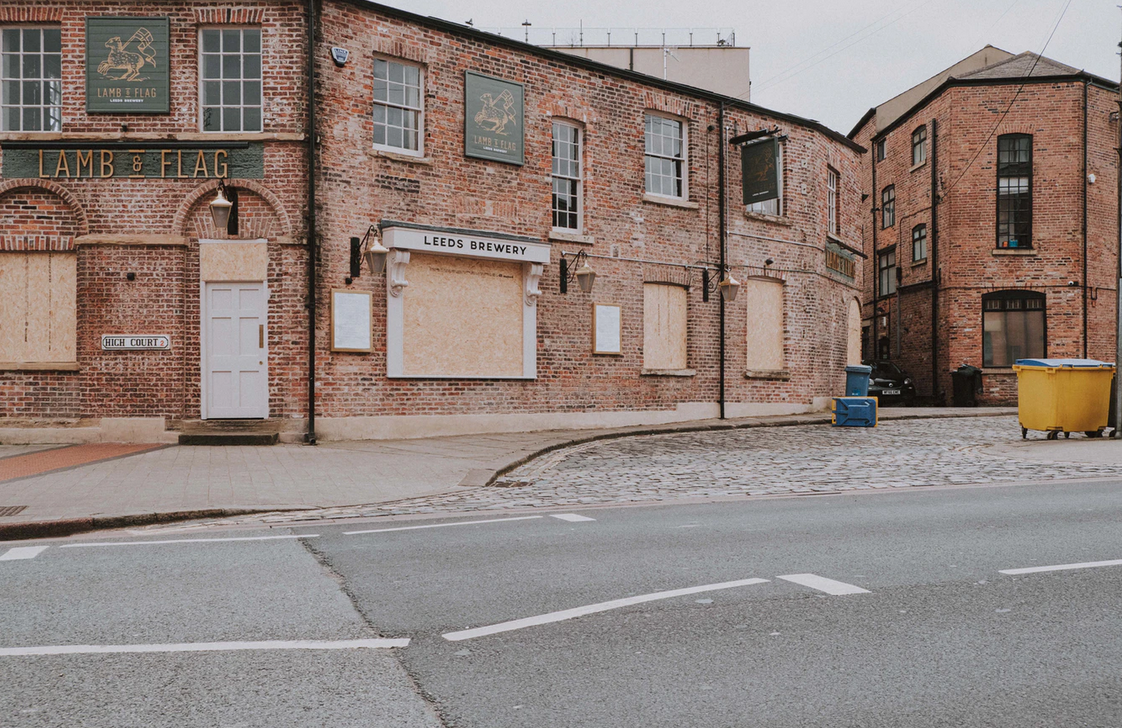Are you awake to see opportunities?
Why is it that some people have the knack to see an opportunity and seize it, and others just watch them pass by?
The announcement came on ‘Earth day’ in April, that the Biden administration will make good on their campaign promise of increasing taxes on rich people. I’ve done complete podcast episodes on his proposed fiscal policy when President Biden was running for office, and it is bittersweet that I write this article within 1 week of releasing a podcast episode entitled ‘Don’t be rich’. Well it seems that the day has come and soon we will know the full details of the capital gains tax hike. Let’s talk about what this means for the unconstrained and those seeking financial sustainability.

* This is not financial advice. If you need financial advice, talk to your CPA or attorney about your specific needs. I have no idea what your personal situation is, but I’m providing this information as a catalyst of thought – not as specific advice or instruction for you to do anything. That’s on you. With that out the way, let’s begin…
First, here's the episode of The Unconstrained Podcast I'm refering to: Episode 085 - DON'T BE RICH
Let’s say you decided to buy a house as a rental property. You paid $250K for it a decade or ago, and the housing market looked favorably upon you. You watch Zillow and other analyst sites telling you that your investment was smart. Now your house is worth $1 million. And your accountant structures your taxes so you can take that 3% depreciation deduction each year. Your tenants are paying down the property for you, so you only owe a small amount left on the mortgage.
Then ‘Black Thursday’ comes. The stock market dumps on the news that President Biden is going to roll-out a 43% capital gains tax for ‘the rich’. You were thinking 15 or 20% long term capital gains tax on this. All your strategies were based on this, since those numbers have been low for decades and why would you expect them to go up?
The housing market is strong and maybe you decided to sell the property since the market is high. Your regular salary of $100K is nice, but you want out of that racket. Listening to the boss berede you over and over isn’t your cup of tea, so the promise of financial freedom is calling your name. Then along comes this news.
Well that is the message that many seeking financial independence are hearing today. It might not be real estate – it could be the score you made when your brother-in-law told you to buy Bitcoin in 2016, or you have been sitting on a ton of Apple stock waiting for the right time to sell it. Or maybe it is some other long term equity position in a passive index fund like Vanguard, etc. Or maybe you bought a ton of gold and have watched it going up and up.
The last 10 or so years have been a bull market in most asset classes in one way or another. That is highly unusual of course. In fact, the 145 months of bull market has never occurred in human history before. Even the heady days of the Dot Com boom of the 90s only had 113 months of bull market. Even the aftermath of the 1929 Great Depression never had this sort of a recovery. But yes, the past 10 or so years has been very charitable to investors.
Then along comes the news that 43% of their winnings could be wiped off the table.
The initial proposal appears to be anyone making $1 million. Surely that can’t be you, right? I mean you are not THAT rich? Maybe you are, or maybe you want to be. But let’s look at the rental property example and explain just how you could be that rich. If you sell your property for $1 million, plus your regular salary income, and the fact you depreciated the base cost on the property over all the years you held it…. Well you could show a gross income of over $1 million here, and if that is the case, you are now subject to the ‘Rich man’s tax’ rates. Sorry, chief.
Now the details in this plan are yet to be unveiled and it still has to pass through congress. But this is a congress in which the Democrats hold the majority in BOTH the house & the senate, meaning that if all Democrats align with the party, this will sail right through to the President’s desk. That means, in my opinion, this has a very high chance of passing.
Do we know if the capital gains tax rates will go up for those earning less than $1 million? My guess is yes, they will. In a country with a budget deficit year after year, and an accumulated debt of $30 trillion dollars, and no sign of how to pay the damn thing off, I guess we are all expected to take a bite of this %#&$ sandwich. Maybe round one of this change in tax policy might be to exclude you if you have a lower income, but again we don’t know the details but we do know that the devil lies deep in those details.
The general social mindset regarding investing (not necessarily shared by the super wealthy by the way) is that you buy something cheap, you wait till it goes up in value, and you sell it when it is high. The profit is made between the two points, less the tax and that’s your enjoyed benefit. Sounds simple.
So if you have been playing the game this way, I’m sorry to tell you – you will probably be part of the many to help pay for the mismanagement of the world’s largest economy.
If you attempt to dilute or destroy this simple model a lot of things will happen. Firstly, no one wants to buy assets if they are going to potentially lose half of the profits they make when they sell them. That means demand for assets will drop.
When demand drops, the old skool model of “Free Market Economics” (remember that?), means that the supply hasn’t changed, but the demand drops. That reflects in pricing. So that asset you have that you value at $1 million, might now drop to $600K or so because no one wants it anymore. Sure, someone out there will want it, but not at $1 million. Unfortunately your net worth just took a big hit, if you are measuring it at all.

This would apply to so many parts of the markets. The DJIA has been bullish for way too long, and as I’ve said over and over, the universe has a way to bring things back into balance naturally. You can’t spin this planet unless the north and south poles are properly balanced and that reflects our weather cycles, night & day, etc. We live in a sine wave existence. If markets have been bullish for so long, they have to be countered by a bear market period.
That’s where my biggest concern comes from. If you remove even part of the desire to own assets because you will have a massive exit tax thrust on you when you sell them, then no one wants to buy them. It is that simple. There’s a ton of talking heads on the business media shows (CNBC, Bloomberg, etc.) trying to calm the markets right now because they say, “No big deal, just get back to making money”. But I do believe that this is a big deal.
When this is announced the impact will be immediately measured on Wall Street. But that’s not really where the impact is. The impact is going to be on anyone that saw themselves as an amateur “Flip this House” guest or host. Those that bought real estate to fix & flip are going to feel the pain here. And if there is little incentive to do the fix part of that equation, the neighborhood is going to look pretty tarnished.
It will also have a negative impact on other asset prices that have been overpriced. One large segment that may hurt retail investors will likely be crypto currencies. Unless you bought recently and intend to sell quickly, then your income is going to be added to your normal income for the year and taxed at those rates. But if you HODL’d on the premise that you keep the assets for 12 months or more and then sell and enjoy those super low capital gains tax rates, well….
End result: Retail investors are cautious. Sell before it’s too late and market tanks. Maybe institutional investors swoop in and pick off the corpse of retail investors losses. I guess that’s not going to be a first.
The common fallacy of buy low/sell high is that you make money when you sell. Not so fast. I don’t believe that. I believe that money & wealth is made when you buy low. Why? Because if you buy income producing assets, then you are focused on the yield – not selling the asset. That’s the core fundamental teaching that I do – financial sustainability comes from the yields on your assets, not the value of the asset.

It is the old story of the Goose that lays the Golden Egg. If you kill the goose, you don’t get any more eggs. It doesn’t matter if the goose is worth $50K or $500K. It is laying eggs. The focus should be on the value of the eggs. And all you need is that the egg value at market is more than what it takes you to earn an income in that crappy job with the boss you hate, and you are financially free. You live off eggs for the rest of your life.
What better condition could there be if the price of geese is cheap, and the cost of borrowing money is super low? You can buy a flock of geese and get a hell of a lot of eggs. As long as you are frugal with your costs early on, you can become the biggest egg farmer in town.
Each day is a blessing in your life. So if you don’t have to spend it working for that crappy boss, it is something you can enjoy. Sell the asset and you no longer have the income. You have a big tax bill. Then you are left with no asset, no rent and a big tax bill. But keep the assets, avoid the big tax bill (or maybe defer it until times change and maybe your exit tax is lower) and still enjoy the rents.
This could be true of equities too. If you are focused on dividend producing stocks, and you can get a nice dividend check from the companies each quarter, do you care so much on the value of the stock? Nope, because that dividend check from GE or wherever is paying your electric bill.
Let’s say that you need a ton of cash and your plans were to sell your assets, pay the small capital gains tax, and go off into the sunset with the money. Maybe this was your retirement plans. What do you do now?
Well let me introduce you to the concept of being your own bank. You know how banks work, right? If you don’t have the money, you go to them and borrow it. They create an asset on their books for your debt, and you have a liability to the bank. What if you had an asset already – let’s say the equity in your rental property (not your primary home – that is not an asset and should NEVER be used for this). If you have a nice relationship with your lender, they may allow you to use the equity in that rental property and lien it for a HELOC (line of credit) secured by your own real estate.

Now look, there are risks here. If the property value tanks and you find yourself owing more than the property is worth, then that’s an issue. You will have to wait until it reclaims its value back here. But if you have equity in the property and you borrow against that equity to get the money, the income there is offset by the debt to the property. Check with your CPA to make sure this would apply to you, but you can get the cash from the asset you already have, and yes – you have to pay interest on that money from a bank, but you then pay that off over time.
What’s left? You still own the goose laying the eggs. The rental income can be used to pay down the debt and service it, and you have the cash to acquire more geese or do whatever with it. If you are conservative with not taking too much equity out, so that there is a decent buffer on the value of the asset, this may be an option.
I’m not saying this is for everyone and history has shown us that some unscrupulous lenders call in their debts if times get hard. But with interest rates at historical lows, rather than selling the assets, you may wish to borrow against them and then if you sell them later, pay off the debts. Or not – just keep letting your tenants pay off the debts for you. Sure, it pushes off the time when you have freehold property out, but it may be a strategy that you can use to acquire more real estate at a time when pricing may become lower.
There are other ways of doing this outside of real estate. If you are interested, consider looking into “Infinite Banking Concept” or IBC as it is offered called. By using over funded life insurance, many people do exactly this. I’m not a life insurance expert, so I will defer to them, but the concept is much the same as using your assets as a bank you can borrow against.
We don’t know all the details of this capital gains tax hike just yet. But I don’t think it is the disaster that much of the financial news are portraying it as – at least not for those seeing financial sustainability. In fact, it could be the best thing that could ever happen for contrarians who are looking to acquire assets at low pricing, with low interest money, and hold them for yield. So many have been forced on the bench and can’t do this while asset prices have been so high.
As they roll out the details on this capital gains tax hike, you will see some reaction in the markets. But again, if you never intend on selling the asset, you won’t be impacted by this.
I have always said that this historically high bull market has to crash or come down at some point. Is this the ultimate catalyst to bring it down? Maybe. Certainly if it has been artificially high due to low interest rate money and Federal Reserve intervention, this could be a day of reckoning for a bull market that is so far over the natural point of correction.
The one thing that contrarians have to look forward to are buying opportunities. We are not following the herd over the cliff, but looking to receive wealth when the times show a potential of great wealth transfer. Yes, there will be casualties here. But that is going to be with the buy low/sell high investors – particularly the retail investors, as they are expected to be on the line to pay for the mismanagement of out of control government spending.
If you want to know more, check out my podcast episode entitled “Don’t be Rich”. And subscribe to The Unconstrained Podcast on your favorite podcast player for more information.